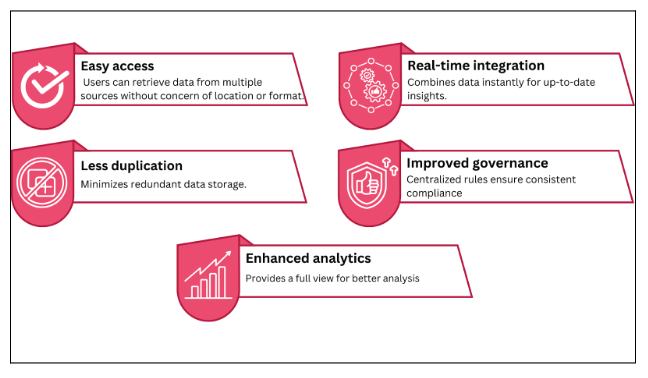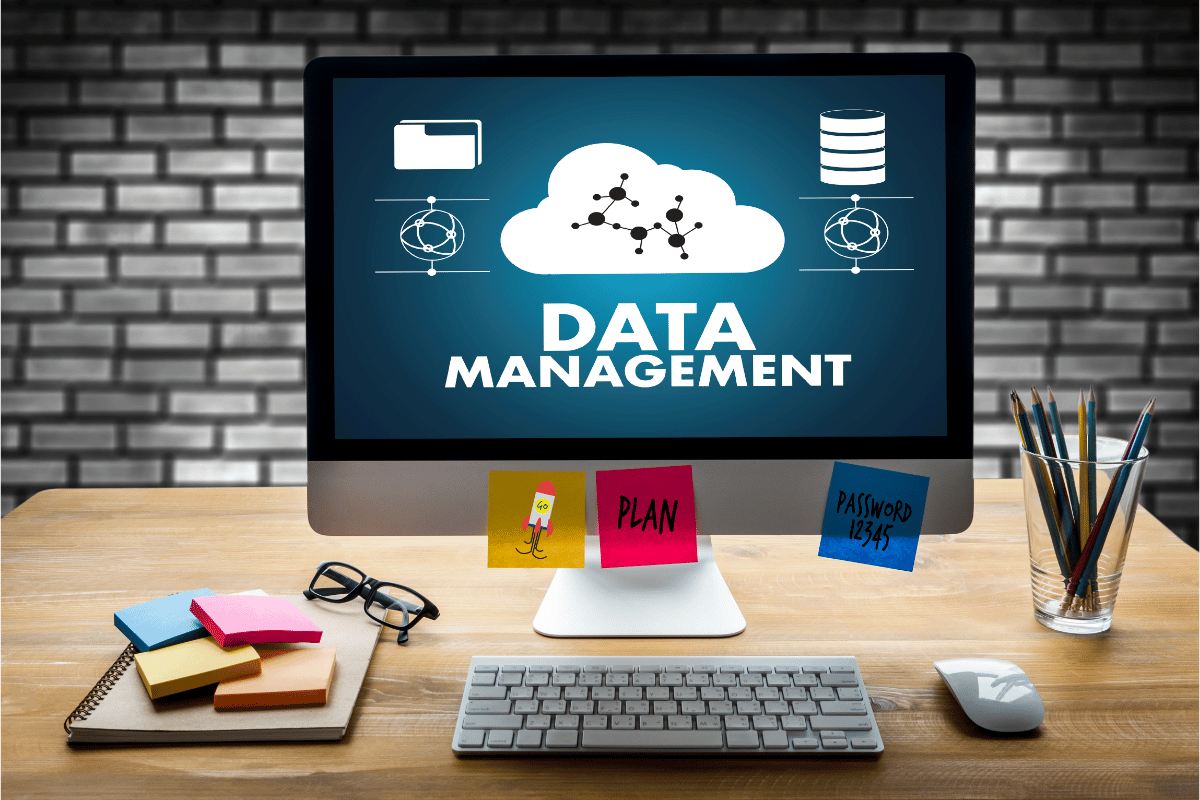7 Innovative Technologies Transforming Data Management
Handling of exponentially growing volumes of data is, in fact, the biggest challenge that businesses face today. Information management and protection are now essential. They are the only ways to improve decisions and comply with complex rules through innovation.
Seven game-changing technologies are finally helping business leaders. They can now solve issues of data accuracy, scalability, and security. If implemented, they will boost efficiency and provide insights. This will enable smarter, data-driven strategies.
1. Artificial Intelligence (AI) and Machine Learning (ML) in Data Management
AI and ML are transforming data management. They address key issues such as data quality and processing speed. These technologies can provide a solution by improving data integrity.
AI algorithms are transforming data management through:
Automated Data Extraction and Classification: AI quickly processes large datasets, identifying and categorizing information with high precision.
Error Detection and Correction: Machine learning spots errors and inconsistencies that human oversight may miss, ensuring accurate data.
Predictive Analytics: AI analyzes historical data to anticipate trends, helping businesses manage data proactively.
Natural Language Processing (NLP): This allows AI to extract useful data from unstructured sources like emails or documents.
For businesses looking for better data management, AI-powered tools like SPARKLE TOOL provide features like automated email verification and data cleansing. Try now 14 days trial to experience how AI can boost your data quality and efficiency.
2. Cloud Data Platforms and Hybrid Infrastructure
The cloud is now the center of modern data management, pushing scalability and flexibility to a whole new level. With cloud services predicted to grow, more businesses find their way to cloud solutions for data needs.
Hybrid infrastructures
This combines on-premises storage with cloud systems which brings key benefits:
- Enhanced security: Sensitive data stays on-premises, while the cloud manages less critical workloads.
- Scalability: Cloud resources can scale to match demand, ensuring smooth operations during peak times.
- Cost savings: Using the cloud for non-sensitive tasks reduces infrastructure costs.
- Accessibility: Cloud platforms allow remote teams to access data easily, supporting collaboration.
- Disaster recovery: Cloud-based backups enable quick recovery in the event of system failures.
By improving data quality with cloud strategies, businesses can save up to $12.9 million annually. They also have tools, like bulk email verification, these improve marketing accuracy and reduce bounce rates.
3. Edge Computing for Real-time Data Processing
Edge computing changes how we handle time-sensitive data by processing it closer to the source. This brings several key benefits:
- Reduced latency: Edge computing delivers faster response times than traditional cloud processing, enabling real-time decisions.
- Bandwidth optimization: Processing data at the edge minimizes the amount sent to central systems, reducing network load and costs.
- Enhanced privacy and security: Sensitive data is processed locally, reducing the risk of exposure during transmission.
- Improved reliability: Edge devices can keep running even when disconnected from the main network, ensuring continuous operation.
- Scalability: It supports distributed processing, making it easier to scale across multiple locations or devices.
This is crucial for IoT, autonomous vehicles, and real-time analytics where decisions must be made in real time.
Edge computing data management allows real-time email verification during data entry. It reduces poor-quality data from the start.
It also allows processing source data for AI and ML models. This cuts massive data transfers. This is due to its efficient data management.
4. Blockchain for Secure and Transparent Data Management
Blockchain is transforming data security and transparency with its decentralized, immutable ledger. Key advantages include:
- Data integrity: Once added, data can’t be changed without agreement from all parties, making records tamper-proof.
- Traceability: Every data change is logged, creating a clear audit trail.
- Decentralized control: No single entity controls the data, reducing the risk of manipulation.
- Smart contracts: These automated contracts manage data access without the need for middlemen.
- Increased trust: Blockchain’s transparency builds trust among participants in data-sharing networks.
In industries such as finance, supply chain, and healthcare, blockchain reduces fraud risks through transparent transactions.
For data management and email verification, blockchain can securely manage user consent and preferences, helping businesses comply with data protection laws.
It can also improve email verification with decentralized identity systems, reducing identity fraud and enhancing database accuracy.
5. Data Fabric and Data Virtualization
Data fabric provides a unified architecture that integrates various data sources, addressing the challenge of data silos. When combined with data virtualization, it provides a powerful solution for modern data management.

This is very effective for huge email address lists, especially in business organizations, when validation processes for emails can be easily implemented on all domains with maximum effectiveness.
Data fabric helps to integrate data related to these email lists from various sources like CRM systems, marketing channels, and customer support software to provide an all-round view of customer communication preferences and engagement.
Data virtualization can also provide data quality management through the availability of a point of access where data cleansing and standardization occur.
It is very helpful in keeping the accuracy to be acquired particularly in maintaining accurate email databases so that the tools intended for email verification are granted the most recent and consistent information available in any system.
6. Quantum Computing’s Potential Impact
Quantum computing, though still developing, holds immense potential for transforming data management. Key benefits include:
- Exponential speed: Quantum computers can process massive datasets much faster than traditional systems, enabling near real-time analysis of complex data.
- Advanced cryptography: Quantum encryption could offer unbeatable security, though it also presents risks to current encryption methods.
- Optimization: Quantum algorithms solve complex optimization problems faster, benefiting areas like supply chain management and finance.
- Improved machine learning: Quantum computing could significantly improve pattern recognition and predictive analytics.
- Scientific simulations: Simulating molecular processes could lead to breakthroughs in fields like drug discovery and materials science.
As it develops, quantum computing could revolutionize large-scale email verification and data compression, drastically improving efficiency in industries dealing with vast data volumes, such as genomics or climate science.
7. Automated Data Governance and Compliance Tools
With increasingly strict data privacy regulations, automated governance tools have become essential for effective data management. These tools offer several key advantages:
- Automated policy enforcement: Data access controls and usage policies can be automatically applied across all data sources.
- Real-time compliance monitoring: Continuous monitoring ensures that data usage remains compliant with relevant regulations.
- Automated data classification: AI-powered tools can automatically categorize data based on sensitivity and regulatory requirements.
- Audit trail generation: Detailed logs of data access and usage are automatically created, facilitating compliance reporting.
- Data lineage tracking: These tools can track the origin and transformation of data throughout its lifecycle, enhancing transparency and accountability.
For businesses managing large email databases, These tools are crucial for maintaining compliance with data protection laws and ensuring effective email verification. They help organizations:
- Automatically protect personal information (PII) in email databases.
- Ensure compliance with regulations like GDPR and CAN-SPAM in email marketing.
- Maintain accurate consent records, tracking user preferences and permissions.
- Facilitate data requests, such as the right to be forgotten.
Automated governance tools can also integrate with email verification services to ensure that only valid, permission emails are used, boosting both compliance and the effectiveness of marketing campaigns by keeping email lists clean and accurate.
Technologies in Data Management
As innovative technologies reshape the data management landscape, their impact varies across key factors like speed, security, scalability, and cost-efficiency. The table below highlights how each technology excels in certain areas, helping businesses choose the right solutions for their specific data needs.
| Technology | Speed | Security | Scalability | Cost-Efficiency |
| AI/ML | High | Medium | High | High |
| Cloud/Hybrid | Medium | High | High | Medium |
| Edge Computing | Very High | Medium | Medium | High |
| Blockchain | Low | Very High | Medium | Low |
| Data Fabric | High | Medium | High | Medium |
| Quantum Computing | Very High | Very High | High | Low |
| Automated Governance | Medium | High | Medium | High |
Innovation with Smarter Data Management
Data volume and importance are growing day by day. Through these seven technologies, more productive, secure data management is created through them. They improve data quality with AI, enhance security through blockchain, and respond to most of the critical challenges facing the landscape of data management.
For businesses aiming to stay ahead in this data-driven world, adopting these technologies is crucial. Whether you’re focusing on email verification or broader data management challenges, these innovations offer powerful solutions to streamline processes, enhance security, and drive better decision-making.
FAQs
How can AI improve data quality?
AI enhances data quality by detecting and correcting errors in real time, handling missing values, identifying duplicates, and ensuring consistency across large datasets.
What is the role of blockchain in secure data management?
Blockchain provides a secure and immutable way to store and share data across multiple stakeholders, ensuring transparency and tamper-proof records.
How do hybrid infrastructures balance security and flexibility?
Hybrid infrastructures combine on-premises data storage with cloud-based solutions, offering security for sensitive data while utilizing the scalability of the cloud for less critical workloads.
What are the benefits of edge computing for data management?
Edge computing enables real-time data processing at the source, reducing latency and bandwidth usage while improving response times for time-sensitive applications.
How does automated data governance enhance compliance?
Automated governance tools enforce data access controls, maintain audit trails, and ensure regulatory compliance, reducing the risk of fines and improving operational efficiency.






